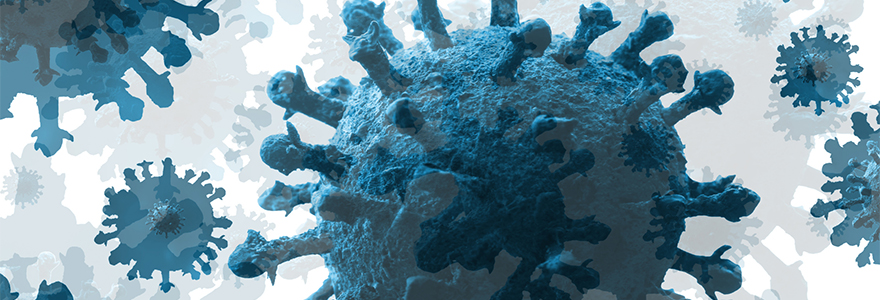Research News: Understanding antibodies at play in long-lasting COVID-19 immunity

A team of researchers across Canada, including collaborators from Schulich Medicine & Dentistry, is helping to shed light on how our bodies develop immunity to the SARS-CoV-2 virus. Their research highlights the importance of specific antibodies made early on in infection, and may help to assess how effectively current vaccines are at conferring long-term immunity.
One of the ways that antibodies contribute to immunity is through their neutralizing capability, which is the ability to bind to the virus and block its entry into the cell, making it unable to infect and cause severe infection. A new study, published this month in Cell Reports, demonstrated that a class of antibody, called IgM, is critical in neutralizing SARS-CoV-2. The researchers identified that IgM was present in the blood of patients previously infected with the virus that causes COVID-19.
“What makes this finding particularly interesting is that IgM is not the class of immunoglobulin that is normally associated with strong, virus neutralizing activity,” said Gregory Dekaban, PhD.
The study was led by principal investigators Dr. Andrés Finzi, from the Université de Montréal and Renée Bazin from Héma-Québec. The work at Schulich Medicine & Dentistry was led by Gregory Dekaban, PhD, Chair of the Department of Microbiology & Immunology, Associate Professor Jimmy Dikeakos, PhD, and Postdoctoral Fellow, Corby Fink, PhD.
“We believe that these findings help us understand how our immune system responds to a SARS-CoV-2 infection,” said Fink. “By measuring the different classes of antibodies that our immune system generates following infection, we gain insight into which specific antibodies are most important to confer long-term immunity. We can use this information to assess how effective current vaccines are in inducing long-term immunity and to compare vaccine-induced immunity to the immune response our bodies launch following natural infection.”
The work using live, infectious SARS-CoV-2 virus was done inside the Containment Level 3 lab in the Imaging Pathogens for Knowledge Translation (ImPaKT) Facility at Western University and was done in collaboration with researchers across the country.
“During this pandemic, rapid research responses through shared knowledge are key,” said Dikeakos. “Mobilizing research resources and expertise across research institutions — government, biopharma and academic — to understand how this virus functions, is a critical requirement to ending the pandemic.”









